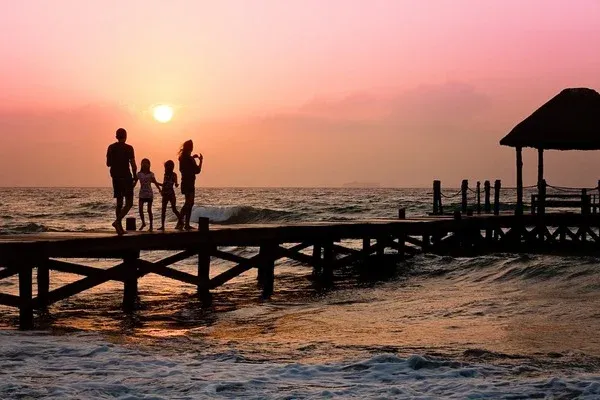Here are a few tips on how travel can help develop the social skills of children.
Family holidays can be a wonderful experience for everyone to enjoy,
creating lifelong memories and helping parents to bond with their children.
It allows them to get away from busy schedules and spend more quality time
together as a family, which is especially
important when children are young. Not only that, but traveling can benefit children’s mental development
and can even improve their social skills.
How travel can help children's social skills
Experiencing new languages
Traveling to a country that speaks a different language to your child can
teach them valuable skills. It can help to teach them that people across the
world are not all the same, spiking their curiosity and potentially
encouraging them to take an interest in the culture.
Teaching children how to say a few simple phrases in the native language, such
as common greetings, as well as “please” and “thank you”, can really help to
build their confidence when communicating. It can also make interacting with
others in their first language seem much less daunting.
Meeting new people
It’s fairly likely that children will meet others and try to make friends on a
holiday. They’re more likely to interact with children they don’t already know
when traveling, teaching them how to start conversations.
Encourage them to partake in any kids’ clubs that are being run at your
accommodation – these are a great way for them to interact with other
holidaymakers their own age. Of course, what children would say is not exactly
your typical small talk, but it teaches them the basic skills they need for
later in life.
Decreases anxiety
It can be really beneficial to bring your children outside of their comfort
zones occasionally. Getting too comfortable in one environment can cause them
to experience anxiety when they do need to venture into new situations.
By
taking them traveling, they will get used to being away from home and in an
unfamiliar environment. As reported in this guide to
the positive developmental impact of travel on kids, 27% of parents said travel helps their children to be braver and more
adventurous.
Engaging in new activities
Nowadays it’s common for children to have phones or tablets and they’re often
engrossed in them, making it hard to tear them away for family time. Traveling
is a great opportunity to get them involved with other activities – such as
board games, swimming, or sports – that will not only provide some quality
family time but can reduce the amount of time spent on technology too.
We understand it can be difficult, with children often being reluctant to part
with their beloved devices. A good compromise could be to set aside a certain
amount of time each day for children to spend on their phones or tablets, but
the rest of it can be filled with other activities. Holidays can be expensive,
especially for the whole family, so the last thing you want is for them to not
be present at the moment.
Try to make the most of this opportunity to teach your children new skills,
experience new cultures, and build the foundations of an open mind. No matter
whether you’re planning a low-key staycation, or a more adventurous holiday to
one of the many
family-friendly destinations across the world, any time away can help to develop these key interpersonal skills.
Even just getting them away from their home can be beneficial, but
incorporating other activities and experiences can give them skills and
memories to last a lifetime.
Similar stories:
This post may contain affiliate links, including those from Amazon Associates, which means that if you book or purchase anything through one of those links, we may earn a small commission but at no extra cost to you. All opinions are ours and we only promote products that we use.
Download a free copy of my Churches of Nueva Ecija eBook HERE!

Post a Comment